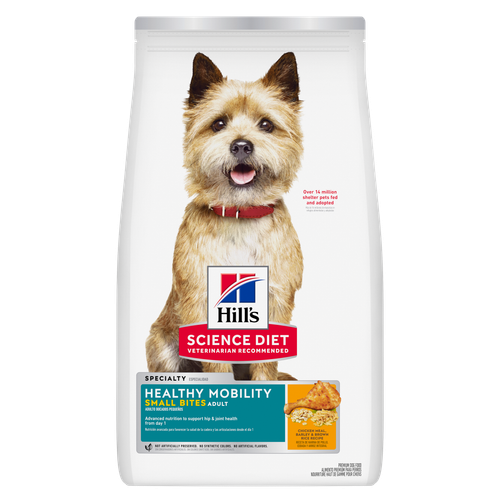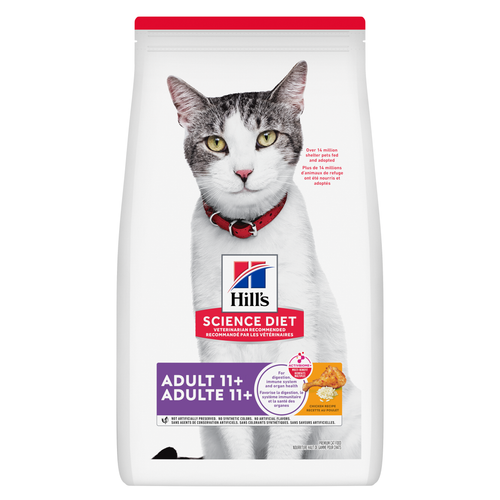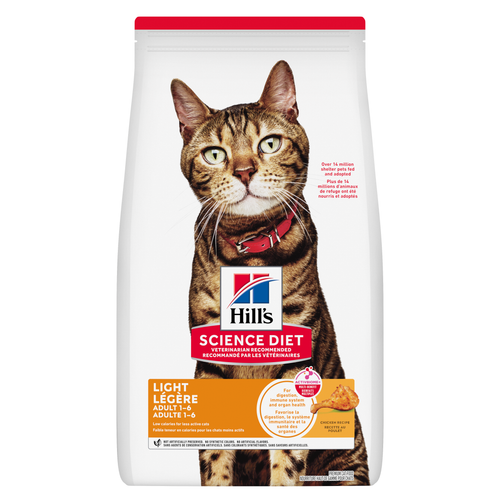
-
Find the right food for your petTake this quiz to see which food may be the best for your furry friend.Find the right food for your petTake this quiz to see which food may be the best for your furry friend.Featured products
 Adult Sensitive Stomach & Skin Small & Mini Chicken Recipe Dog Food
Adult Sensitive Stomach & Skin Small & Mini Chicken Recipe Dog FoodHill's Science Diet Sensitive Stomach & Skin Small & Mini dry dog food is tailored nutrition for Small & Mini dogs while being gentle on stomachs. Nourishes skin & promotes a lustrous coat.
Shop Now Adult Light Large Breed Chicken Meal & Barley Recipe Dog Food
Adult Light Large Breed Chicken Meal & Barley Recipe Dog Food18% lower calories vs. Science Diet Large Breed Adult
Shop Now Adult Healthy Mobility Small Bites Chicken Meal, Barley & Brown Rice Recipe Dog Food
Adult Healthy Mobility Small Bites Chicken Meal, Barley & Brown Rice Recipe Dog FoodAdvanced nutrition to support hip & joint health from day 1
Shop NowFeatured products Adult Healthy Cuisine Seared Tuna & Carrot Medley Cat Food
Adult Healthy Cuisine Seared Tuna & Carrot Medley Cat FoodDelicious seared tuna paired with tender carrots in a mouthwatering sauce
Shop Now Adult 11+ Chicken Recipe Cat Food
Adult 11+ Chicken Recipe Cat FoodSupports brain health & beautiful fur. Helps keep immune system, heart & kidneys healthy.
Shop Now Adult Light Chicken Recipe Cat Food
Adult Light Chicken Recipe Cat Food20% lower calories vs. Hill's Science Diet Adult
Shop Now -
Dog
- Dog Tips & Articles
-
Health Category
- Weight
- Food & Environmental Sensitivities
- Urinary
- Digestive
- Joint
- Kidney
- Dental
- Cancer
-
Life Stage
- Puppy Nutrition
- Adult Nutrition
- Senior Nutrition
Cat- Cat Tips & Articles
-
Health Category
- Weight
- Skin & Food Sensitivities
- Urinary
- Digestive
- Kidney
- Dental
- Stress
- Cancer
-
Life Stage
- Kitten Nutrition
- Adult Nutrition
Featured articles Antioxidants
AntioxidantsUnderstand the importance of antioxidants in your dog or cat's food, and how they can help protect your pet and keep them healthy.
Read More Water
WaterDiscover why water is the most important nutrient for your dog or cat to live a healthy life. Find out how much water your pet should consume each day.
Read More Importance of DHA in your Pet's Food
Importance of DHA in your Pet's FoodLearn about DHA, Docosahexaenoic Acid, a natural omega-3 fatty acid that is essential in the development of the brain and nervous system in cats & dogs.
Read More -


Your cat’s kidneys play a vital role in maintaining her health. They help control her blood pressure, regulate the bloodstream, produce important hormones, enzymes, and red blood cells, as well as remove metabolic waste from the blood. If the cat’s kidneys aren’t able to do their job properly, this can lead to significant, life-threatening problems for your cat.
Common Causes of Cat Renal Failure
Kidney failure is one of the most common causes of severe illnesses in cats, especially in older cats. There are two categories of renal failure in cats: acute renal failure and chronic renal failure. Signs of acute renal failure usually manifest over a week or month’s time, while chronic renal failure is present for a longer period. The risk for cat kidney disease is higher in certain breeds like Persians and Angoras, but the disease is typically acquired.
Potential causes of kidney failure in cats include:
- Decreased blood or urine flow to the kidneys
- High blood pressure
- Cancer
- Obstructions such as kidney stones
- Ingestion of toxic substances, such as antifreeze, pesticides, medications and cleaning chemicals
- Advanced dental disease
- Some long-haired breeds (such as Persians and Angoras) have a genetic predisposition to the disease
- Age older than seven years
- A food high in phosphorus or increased levels of protein can increase the disease’s progression
- Outdoor cats have a higher risk for acute problems due to their potential increased exposure to toxins
Signs of Kidney Failure in Cats
Common signs of kidney failure in cats may be difficult to detect because of their similarities to other disorders like diabetes and hyperthyroidism. Unfortunately, kidney failure is a progressive disease, and symptoms may not be apparent for a long time.
If you notice any of these signs in your cat, contact your vet:

- Reduced appetite
- Increased thirst
- Frequent or no urination
- Bloody or cloudy urine
- Vomiting
- Poor coat appearance
- Lethargy and depression
- Weight loss
- Bad breath
- Sore mouth or mouth ulcers
- Diarrhea or constipation
- Increased sleeping


Tasty Tips
Treatment for Feline Kidney Disease
Cats in early stages of kidney disease usually do not show signs of the disease. Typically, signs do not appear until 75 percent of kidney function has been lost. With early diagnosis, acute renal failure can be detected and managed. However, chronic renal failure is an incurable condition that mainly affects older cats and is treated with palliative care. Depending on the condition, your vet may recommend fluid therapy, food modification, blood pressure drugs, dialysis or a transplant.
Because symptoms may not be apparent until your cat’s kidney functions have been lost, it is important to make sure your cat gets her regular check-up at the vet. This could be the difference in catching it early and catching it too late. Also, it is helpful to document unusual tendencies you notice in your cat from the onset such as the ones listed above; this can be very helpful in helping your vet to determine if your cat’s kidneys need to be further examined. It’s recommended that all cats 7 years and older get a “senior screening” at their annual check-up in order to determine if your cat has kidney issues.
Providing the proper nutrition for your cat can help reduce the risk of kidney disease and failure and improve her overall health. If your cat has been diagnosed with kidney disease, modifying her food can help slow the progression of disease and lengthen her lifespan. Specially formulated foods can be beneficial to the kidneys by having less protein and phosphorous than other pet foods. Phosphorus restriction can lessen the severity of the symptoms and progression of kidney damage, while decreased, high-quality proteins can help restore normal acid-base levels.
Balanced nutrition is an essential part of an active, healthy lifestyle. If your cat has kidney problems, the right nutrition can positively impact her life. Make sure you have fresh water available to your cat at all times. If you suspect that your cat may have renal failure, consult your veterinarian and discuss the best food for her kidney health. Be sure to ask your veterinarian about special cat foods that support kidney health, and see if they are right for your cat if she is diagnosed with kidney problems.


One of our staff authors prepared this article for you
Related products

20% lower calories vs. Hill's Science Diet Adult

Supports brain health & beautiful fur. Helps keep immune system, heart & kidneys healthy.

Delicious seared tuna paired with tender carrots in a mouthwatering sauce

With delicious chunks in a decadent gravy
Related articles

When you adopt a cat, you don't just gain a best friend; you also save her life. Here's why getting a cat from a local animal shelter makes so much sense.

Cats are naturally very clean and chances are your kitten will already have learned how to use the litter box from her mother before she comes to live with you.

Discover how to train your cat, starting with very basic first steps that both reward good behavior and discourage the bad.

Discover the benefits of Hill's line of kitten foods and how they provide complete and balance nutrition for growing kittens.

Put your cat on a diet without them knowing
Our low calorie formula helps you control your cat's weight. It's packed with high-quality protein for building lean muscles, and made with purposeful ingredients for a flavorful, nutritious meal. Clinically proven antioxidants, Vitamin C+E, help promote a healthy immune system.
Put your cat on a diet without them knowing
Our low calorie formula helps you control your cat's weight. It's packed with high-quality protein for building lean muscles, and made with purposeful ingredients for a flavorful, nutritious meal. Clinically proven antioxidants, Vitamin C+E, help promote a healthy immune system.

